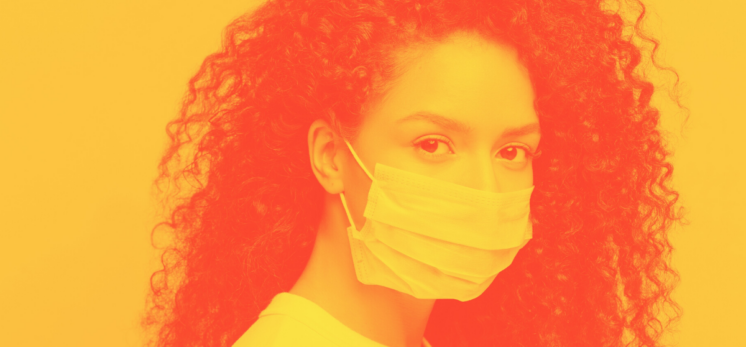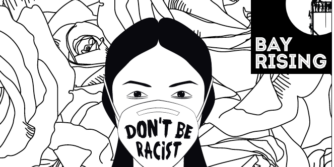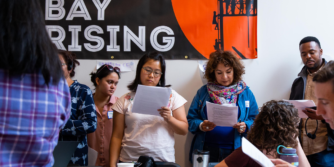As it becomes clear that we must prepare for the worst possible impacts of COVID-19, activists and organizers need to think not only about what we’re organizing for, but how we’re organizing.
This is what organizers do. We stay attuned to the needs of our communities and we adapt our strategies to the moment.
The Bay Rising network has shifted impressively quickly to remote organizing–we’re figuring it out as we go along, but we’re ready to make some big changes and make hard sacrifices in order to keep all our people safe. For example, we’re planning to shift most of our door-to-door outreach for the Census to phonebanking with mobile hotspots, so our outreach workers can get out the count from home.
Keeping everyone safe means protecting our staff and the people in our communities who are the most vulnerable: low-wage Latinx, Black, and Asian workers, seniors, immigrants, people who are immunocompromised, people who are houseless and living in crowded conditions, people who are housing-insecure, and more. No one is safe until we’re all safe.
Here is our list of resources that we’ve found helpful so far, and we’ll keep updating as we come across more information. Stay safe out there and remember: #PowerNotPanic!
Adapting our organizing
- Options to Safely Take Action to Protect Our Climate, Communities, and Future [via David Solnit]
- Caring Across Distance: Some Things to Consider Before Movement Gatherings during COVID-19 [via the Healing Justice Podcast and Maryse Mitchell-Brody]
- 55-minute podcast: Coronavirus: Wisdom from a Social Justice Lens [via Healing Justice Podcast]
- 15-min version with transcript on making responsible and informed decisions about cancellation / postponing events during COVID-19 [via Healing Justice Podcast]
- Adapt remote organizing to be fun and sociable, taking inspiration from long-distance relationship ideas! [via Modern Love Long Distance]
- Share strategies, tools, approaches that are working in remote campaigning. MobLab will add them to a collective resource and use them to shape a community call. [via MobLab]
- MobLab is hosting a community call next week for changemakers who want to learn and share their experiences on how to campaign effectively remotely. Sign up here with the times that work for you. [via MobLab]
- Tips for hosting hybrid virtual/IRL meetings. [via Mary Alice Crim and the Narrative Change Initiative]
- Remote teaching resources shared by colleges and a comprehensive listing of resources for online meetings, classes and events. [via Randall Smith and the Narrative Change Initiative]
- The Coronavirus Tech Handbook is an exhaustive aggregation of almost anything tech related to help manage communications, misinfo, work and more. [via Newspeak House and the Narrative Change Initiative]
- Community and event managers talk about resources, tools and apps when you need to move engagement online. [via the Narrative Change Initiative]
- How do we gather in community to care for others? One example: a Facebook group for contractors and freelancers to support one another. [via the Narrative Change Initiative]
For organizers as workers, employers and advocates
- Being a good employer [via Hand in Hand, the Domestic Employers Network]
- Disability rights call to action [via The Partnership for Inclusive Disaster Strategies]
- What to do if you have the virus? [via Washington state Department of Health]
- What are my rights as a worker? This resource is also available in Spanish and Chinese. [via Legal Aid at Work]
Supporting the health of people experiencing homelessness
- What if you can’t stay home? [via Street Sheet]
- CDC: Interim Guidance for Homeless Service Providers to Plan and Respond to Coronavirus Disease 2019 (COVID-19)
- CDC: Resources for Community- and Faith-Based Leaders
- CDC: Workplace, School, and Home Guidance
- HUD: Infectious Disease Prevention & Response
- HUD: Infectious Disease Toolkit for CoCs
- HUD: Questions to Assist CoCs and Public Health Authorities to Limit the Spread of Infectious Disease in Homeless Programs
- HUD: Specific Considerations for Public Health Authorities to Limit Infection Risk Among People Experiencing Homelessness
- HUD: Eligible ESG costs for Infectious Disease Preparedness




